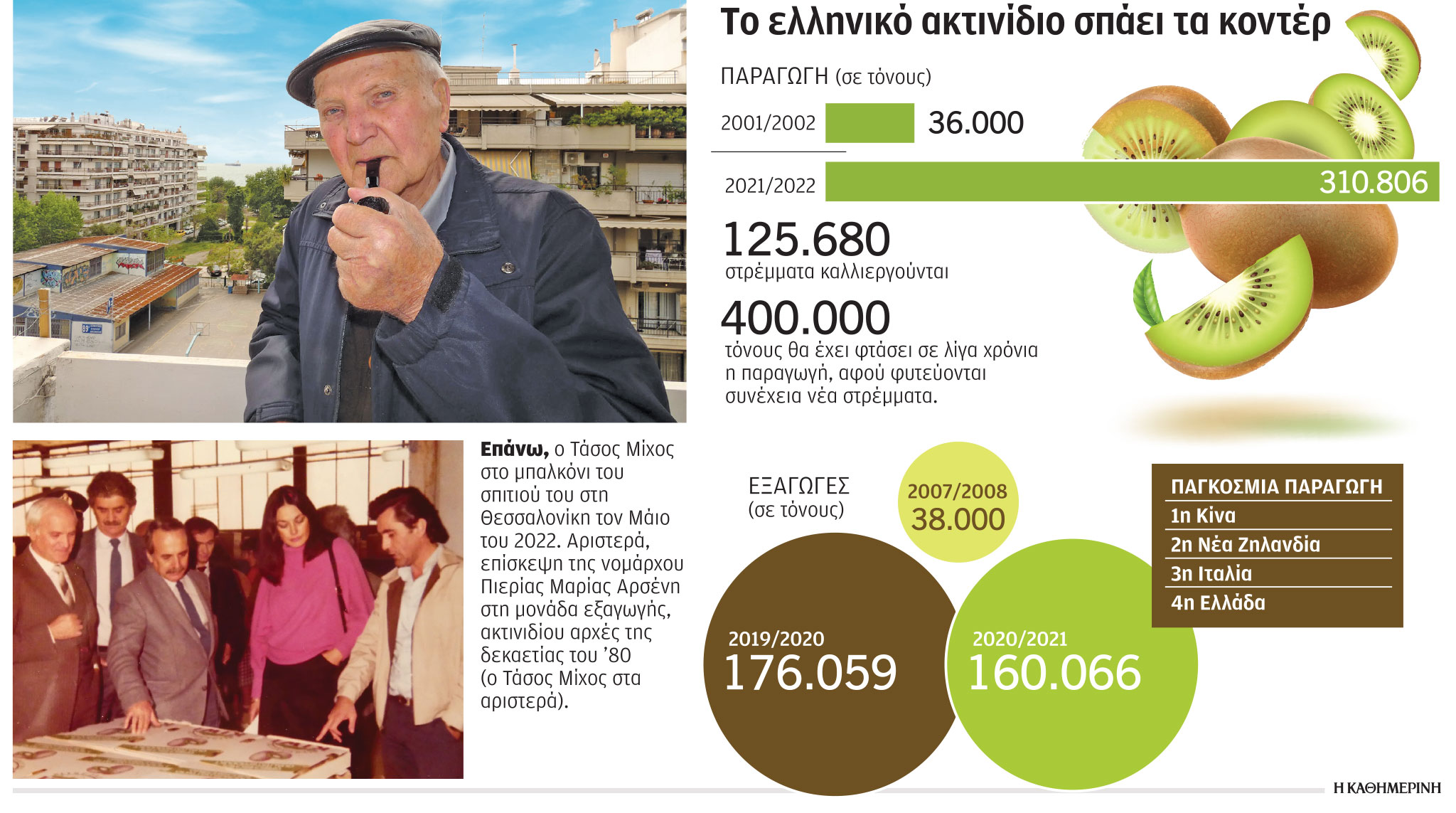
Since it is commonly known as kiwi in our case it is called kiwi; Godfather of fruits in Greek, agronomist Thassos Michoswho brought it from New Zealand through Italy to Greece and “installed” in Catherine in the 80s, passed away yesterday at the age of 94. The “new” fruit was named kiwi because, when cut in half, the cut looks like the spokes of a bicycle wheel, Thassos Mihos himself told researcher Irini Antoniou in an interview that is contained in the archive of the Istorima research center. , Stavros Niarchos Foundation.
“We married our children on kiwi, built a house, let Mr. Mikhos get well,” say the farmers of the area where he was first planted. In the following decades, the kiwifruit became big business for Greek agriculture and the economy of Greece, which became the world’s fourth largest producer and exported large quantities to many countries around the world. In fact, the area under cultivation of kiwi is constantly increasing as it is a good source of income and has replaced tobacco in many areas, the cultivation of which has declined significantly. Pieria is the area with the highest quantity and the product produced in this area has a designation of origin (PGI). In Phthiotis, the kiwi was protected certified designation of origin (PDO). This year, the war in Ukraine and the closure of some markets for the first time caused instability in the selling prices of precious fruits.
Thassos Mihos, the agronomist who introduced him to Greek growers, was born in 1929 in Korisos, Kastoria. After graduating from school, he left his village for Thessaloniki at the height of the civil war. He was the only one of his three brothers and sisters who went to study. The rest remained in the fields and among the animals, where he was destined to return by another way.

The resourceful agronomist, who died yesterday at the age of 94, learned about the kiwifruit after reading a French magazine.
“My mother gave me a thin blanket to take with me, which I kept under my arm. I got into one of the trucks carrying groceries to Thessaloniki. Until we went beyond Veria, we were accompanied by armored vehicles, ”he says in the same interview in the archive of the Istorima research center. He was well versed in mathematics, but believed that if he went to the Faculty of Mathematics, he would definitely become a teacher, so he passed the exam and ended up in an agricultural school.
His first job was as an application agronomist in Katerini. But he managed to get two grants, one from the OECD for Florence and another from the French government, related to the standardization of agricultural products. And that is how he also saw what was happening just outside of our own fields. Reading a French magazine, he learned about the kiwi, a hairy fruit that grows in areas where corn and apple trees grow: apples, pears, quinces.
“This will do here too,” thought the resourceful agronomist and contacted Italy, the Florentine Institute, to receive seedlings through it, since Greece could not then import directly. Within a few days, ten seedlings arrived in Greece and were planted for testing in the village of Svorono, where soil and climatic conditions were similar to those in New Zealand. This was the first time that Thassos Mychos tasted the famous fruit, and it seemed sour to him. But “northerners who don’t eat a lot of sugar did,” he says in the same interview. A start was made in two nurseries, and then cultivation spread one by one.
It’s good that New Zealand, the leader all these years, puts kiwifruit on the market in those months that Greece does not produce, that is, our summer. Thus, the global market is receptive when kiwi fruit is harvested in Greece in October and stored in suitable refrigerators in the following months.
Source: Kathimerini
Ashley Bailey is a talented author and journalist known for her writing on trending topics. Currently working at 247 news reel, she brings readers fresh perspectives on current issues. With her well-researched and thought-provoking articles, she captures the zeitgeist and stays ahead of the latest trends. Ashley’s writing is a must-read for anyone interested in staying up-to-date with the latest developments.